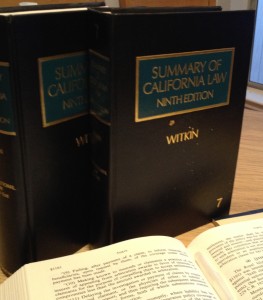Dangerous Conditions on Public Property
THE GOVERNMENT HAS ONLY LIMITED LIABILITY FOR INJURIES OCCURRING ON PUBLIC LAND
The general rule for injuries occurring on public land–meaning land either owned or controlled by a government entity–is that the governmental entity responsible for the land is “immune” from suit.
Governmental immunity is a concept which protects the government against lawsuits by private persons. When the government is immune from suit, private persons cannot file a lawsuit against the government (or government agencies) unless some legally-recognized exception applies.
Although the governmental immunity doctrine does apply to injuries resulting from hazards on public property, the government may have liability for injuries when certain conditions apply.
THE EXCEPTION: WHEN A GOVERNMENTAL ENTITY MAY BE LIABLE FOR INJURIES OCCURRING ON PUBLIC LAND
In appropriate cases, a governmental defendant may be held liable for injuries resulting from hazardous conditions on public property–but the plaintiff must also prove all of the following elements:
1. The property where the injury occurred was dangerous at the time of the injury. This requires proof of an actual hazardous condition on the property.
2. The public entity responsible for the land was at fault for the plaintiff’s injuries, because:
— the public entity had actual or constructive notice (meaning the entity knew or should have known) about the dangerous condition, and had that notice far enough in advance to have taken some action to correct the condition or prevent the plaintiff’s injury; OR
— the dangerous condition was created by an employee’s wrongful act or failure to act.
3. The dangerous condition created a foreseeable risk of exactly the type of injury which the plaintiff suffered.
Unless the plaintiff can prove all of these elements (and all of the other special requirements which apply when a private citizen tries to sue a governmental entity) immunity will apply and the plaintiff’s lawsuit will be unsuccessful.
NEVER ATTEMPT TO SUE A GOVERNMENT ENTITY WITHOUT AN ATTORNEY’S ASSISTANCE
Suing a government entity is much more complex than litigating against a private person. Plaintiffs may damage, or even lose, their legal rights by trying to seek damages from a public entity or government agency without the aid of experienced legal counsel. If you believe that you have rights against a government entity, contact an experienced lawyer without delay.
***
DISCLAIMER: This article is intended for informational purposes only, does not constitute legal advice to any person or entity, and does not create an attorney-client relationship with any person or entity. Premises liability is a complex legal topic, and no single article can provide complete or comprehensive coverage or information about this or any other legal topic or issue. Your personal liability may differ, based on your individual facts and circumstances. If you believe you have a legal claim or issue, or wish to know more about your individual rights, consult an experienced attorney immediately.
















